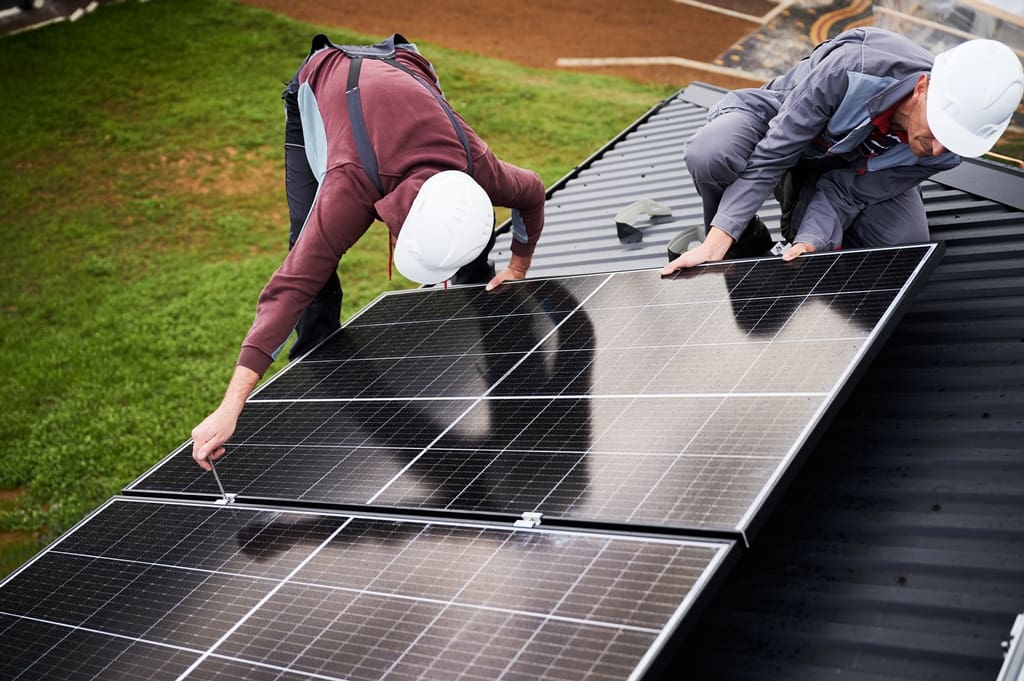In recent years, the conversation around renewable energy has become increasingly prominent, with many homeowners considering solar panels as a viable option to power their homes. But is investing in solar panels really worth it? Let’s delve into the factors you should consider before making this decision.
1. Energy Savings:
One of the primary reasons homeowners opt for solar panels is the potential for long-term energy savings. Solar panels harness the power of the sun to generate electricity, reducing reliance on traditional energy sources. Over time, this can significantly lower your utility bills, offering substantial savings in the long run. However, it is important to recognize that there is substantial up-front cost in the installation of solar panels and it may take a while before you realize the cost savings.
2. Environmental Impact:

Choosing solar panels isn’t just about saving money; it’s also about reducing your carbon footprint. Solar energy is clean and renewable, producing minimal greenhouse gas emissions compared to fossil fuels. By switching to solar power, you can contribute to a more sustainable future and lessen your impact on the environment.
3. Return on Investment (ROI):
While the initial cost of installing solar panels may seem daunting, it’s essential to consider the long-term returns. Many homeowners find that the savings on energy bills eventually outweigh the upfront expenses, resulting in a positive ROI over time. Additionally, various financial incentives, such as tax credits and rebates, can further enhance the financial benefits of going solar.
4. Home Value:

Another aspect to consider is the impact of solar panels on your home’s resale value. Studies have shown that homes equipped with solar panels tend to sell faster and at higher prices than those without. Potential buyers are often attracted to the prospect of lower energy bills and eco-friendly features, making solar-equipped homes more desirable in the real estate market.
5. Maintenance and Durability:
Solar panels are known for their durability and low maintenance requirements. With no moving parts, they typically require minimal upkeep, with occasional cleaning to ensure optimal performance. Most solar panels come with extensive warranties, providing peace of mind and assurance of long-term reliability.
6. Drawbacks of Solar Panels:
While there are numerous benefits to installing solar panels, it’s essential to consider the potential drawbacks as well. One significant drawback is the upfront cost associated with purchasing and installing solar panels. There may be tax-related incentives to installing solar panels however, these incentives often have many loopholes that need to be fully understood before diving in. While prices have decreased in recent years, the initial investment for solar panels can still be substantial for many homeowners.
Additionally, the effectiveness of solar panels can be impacted by factors such as location, shading, and weather conditions, which may affect their overall efficiency. Furthermore, while solar panels require minimal maintenance, they do require periodic cleaning and may need repairs over time, which will add to the overall cost to solar panels.
Lastly, the technology for storing solar energy for use during non-sunny periods is still developing, meaning homeowners may need to rely on grid electricity during times when solar power generation is insufficient. Despite these drawbacks, the long-term benefits of solar energy often outweigh these considerations for many homeowners.
Hiring a Professional Solar Company:

Navigating the process of selecting and installing solar panels can be complex. While there are many reputable companies that offer this installation, there are many that are not properly trained and can cause more harm than good. Beware of any offers that seem too good to be true. Do your research before hiring a company to install solar panels on your home.
Reputable companies have the expertise and experience to assess your home’s energy needs, recommend the most suitable solar system, and handle the installation process efficiently and effectively. By hiring a professional solar company, you can ensure that your system is installed correctly and safely, maximizing its performance and longevity.
Moreover, reputable solar companies often provide warranties and ongoing support, giving you peace of mind knowing that your investment is protected. Additionally, these companies can help navigate any permitting or regulatory requirements, saving you time and hassle. While there may be an added cost associated with hiring a professional company, the expertise and support they provide can ultimately result in a smoother and more successful solar panel installation process.
The Take-away
In conclusion, the decision to add solar panels to your home involves careful consideration of various factors, including energy savings, environmental impact, ROI, home value, and maintenance. While the initial investment may seem significant, the long-term benefits often outweigh the costs, both financially and environmentally. By harnessing the power of the sun, you can not only reduce your energy bills but also contribute to a greener, more sustainable future.
#SolarPanels #RenewableEnergy #HomeImprovement
